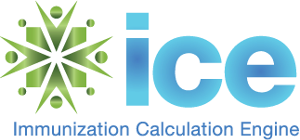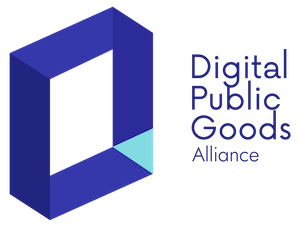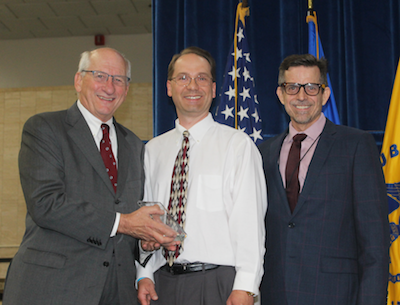open health
See the following -
HLN Releases Update to Open Source Immunization Forecaster in Preparation for COVID-19 Vaccine
 On November 6, 2020, HLN released a new version (v1.24.2) of the Immunization Calculation Engine (ICE). ICE is a state-of-the-art open source software system that provides clinical decision support for immunizations for use in Immunization Information Systems (IIS), Electronic Health Record (EHR) and Personal Health Record (PHR) Systems.
On November 6, 2020, HLN released a new version (v1.24.2) of the Immunization Calculation Engine (ICE). ICE is a state-of-the-art open source software system that provides clinical decision support for immunizations for use in Immunization Information Systems (IIS), Electronic Health Record (EHR) and Personal Health Record (PHR) Systems.
- Login to post comments
HLN to Present Innovative Open Source Solutions at HIMSS19 Interoperability Showcase
 For the third straight year, HLN Consulting, a leading medical informatics consulting company, will participate in the Interoperability Showcase at this year's HIMSS19 Global Conference and Exhibition which is being held in Orlando, FL from February 11-15, 2019. The Showcase itself runs on February 12-14 and consists of a series of connected demonstrations which are collaborative projects between 6-8 organizations using interoperability standards to exchange information and improve the quality and value of the care provided. Together they develop a storyline, or scenario, that contextualizes the value of their demonstration and tells the story of a patient, caregiver, or provider. This year HLN will participate in two scenarios...
For the third straight year, HLN Consulting, a leading medical informatics consulting company, will participate in the Interoperability Showcase at this year's HIMSS19 Global Conference and Exhibition which is being held in Orlando, FL from February 11-15, 2019. The Showcase itself runs on February 12-14 and consists of a series of connected demonstrations which are collaborative projects between 6-8 organizations using interoperability standards to exchange information and improve the quality and value of the care provided. Together they develop a storyline, or scenario, that contextualizes the value of their demonstration and tells the story of a patient, caregiver, or provider. This year HLN will participate in two scenarios...
- Login to post comments
HLN's Immunization Calculation Engine (ICE) chosen as a Digital Public Goods Standard
 HLN Consulting is thrilled to announce that the Immunization Calculation Engine (ICE) project has been chosen by the Digital Public Goods Alliance (DPGA) as an innovative openly licensed technology and listed in their Digital Public Goods registry. Technologies included in the list are considered to be digital public goods in alignment with the Digital Public Goods Standard. ICE now appears in the Digital Public Goods registry where it is discoverable as a digital public good and reflected on a growing network of catalogs and aggregated lists of digital public goods.
HLN Consulting is thrilled to announce that the Immunization Calculation Engine (ICE) project has been chosen by the Digital Public Goods Alliance (DPGA) as an innovative openly licensed technology and listed in their Digital Public Goods registry. Technologies included in the list are considered to be digital public goods in alignment with the Digital Public Goods Standard. ICE now appears in the Digital Public Goods registry where it is discoverable as a digital public good and reflected on a growing network of catalogs and aggregated lists of digital public goods.
- Login to post comments
HLN's Open Source Immunization Forecaster Receives 2017 Upshot Award
 On June 6, 2017, HLN was awarded the 2017 Upshot Award for Excellence in Vaccine Supply, Access, and Use by the US Department of Health and Human Services National Vaccine Program Office (NVPO) for its ICE Open Source Immunization Forecaster. In the letter of award, Dr. Jewel Mullen, Principal Deputy Assistant Secretary for Health commented that, "HLN Consulting's efforts on the Immunization Calculation Engine (ICE) are impressive. This powerful tool-including its open-source nature and seamless integration into clinical workflows-holds great promise for improving clinical decision-support and ultimately vaccination rates. Thank you for daring to innovate, collaborate, and lead in an area that is not only complex, but constantly evolving."
On June 6, 2017, HLN was awarded the 2017 Upshot Award for Excellence in Vaccine Supply, Access, and Use by the US Department of Health and Human Services National Vaccine Program Office (NVPO) for its ICE Open Source Immunization Forecaster. In the letter of award, Dr. Jewel Mullen, Principal Deputy Assistant Secretary for Health commented that, "HLN Consulting's efforts on the Immunization Calculation Engine (ICE) are impressive. This powerful tool-including its open-source nature and seamless integration into clinical workflows-holds great promise for improving clinical decision-support and ultimately vaccination rates. Thank you for daring to innovate, collaborate, and lead in an area that is not only complex, but constantly evolving."
- Login to post comments
How A Free Mobile App Fights Ebola And Other Global Epidemics
 The enormity and severity of the West African Ebola epidemic that began in 2014 is hard to fathom. The outbreak resulted in more than 11,000 deaths, and hundreds of thousands of people affected by loss. Providing adequate care for any medical condition depends on information, but even more so when dealing with an epidemic that is as severe, dangerous, and fast-moving as Ebola. This is the story of how a dispersed global health IT community banded together to solve the enormous, unique information challenges presented by Ebola...
The enormity and severity of the West African Ebola epidemic that began in 2014 is hard to fathom. The outbreak resulted in more than 11,000 deaths, and hundreds of thousands of people affected by loss. Providing adequate care for any medical condition depends on information, but even more so when dealing with an epidemic that is as severe, dangerous, and fast-moving as Ebola. This is the story of how a dispersed global health IT community banded together to solve the enormous, unique information challenges presented by Ebola...
- Login to post comments
How can an Electronic Health Solution help Physicians Keep their Doors Open
In my previous article I started to address the unenviable position that physicians in the United States find themselves, in and how open source solutions can help them keep their doors open. In this article we will address some of the additional business challenges that physician offices and clinics face, and how the Electronic Health Solution (EHS) that we just released can help give them the tools and flexibility to both care for their patients and run a sustainable practice.
- Login to post comments
How Citizens Become Scientists with Open Hardware
 Eymund Diegel, a research coordinator for Gowanus Canal Conservancy, shares this tidbit during the first clip of the new Open Source Stories documentary, "The Science of Collective Discovery." He's setting out in a canoe on an inner-city canal that is polluted and struggling to get the help it needs. That's the theme of citizen science it seems: people and places in need who are not getting the help and resources they deserve taking matters into their own hands. Why are they not getting the help they need in the first place? The reason is shockingly simple yet a typical problem: Where's the evidence?
Eymund Diegel, a research coordinator for Gowanus Canal Conservancy, shares this tidbit during the first clip of the new Open Source Stories documentary, "The Science of Collective Discovery." He's setting out in a canoe on an inner-city canal that is polluted and struggling to get the help it needs. That's the theme of citizen science it seems: people and places in need who are not getting the help and resources they deserve taking matters into their own hands. Why are they not getting the help they need in the first place? The reason is shockingly simple yet a typical problem: Where's the evidence?
- Login to post comments
How DoD Plans to Leverage Artificial Intelligence and Open Source to Improve Emergency Response and Disaster Relief
 Some might not know it, but the US military plays a key role in US disaster response strategy and, accordingly, the Department of Defense (DoD) has prioritized its disaster response mission and is investing heavily towards increasing its capabilities and effectiveness. Technology is a big part of all modern DoD missions, and disaster response is no different. The most promising and transformative technology on the horizon for our future, and for the future of the DoD, is Artificial Intelligence (AI). So how exactly will the DoD leverage Artificial Intelligence technologies in order to meet the demands of the disaster response mission? Is a new Center of Excellence created by DoD, called the Joint Artificial Intelligence Center (JAIC). Read More »
Some might not know it, but the US military plays a key role in US disaster response strategy and, accordingly, the Department of Defense (DoD) has prioritized its disaster response mission and is investing heavily towards increasing its capabilities and effectiveness. Technology is a big part of all modern DoD missions, and disaster response is no different. The most promising and transformative technology on the horizon for our future, and for the future of the DoD, is Artificial Intelligence (AI). So how exactly will the DoD leverage Artificial Intelligence technologies in order to meet the demands of the disaster response mission? Is a new Center of Excellence created by DoD, called the Joint Artificial Intelligence Center (JAIC). Read More »
- Login to post comments
How Does an Entrepreneur Help His Fiancé Fight Cancer? With Open Source Tools, of Course.
 My name is Jorge. I started Kanteron Systems, a medical imaging open-source software company, in Valencia (Spain) in 2005. In 2011 I moved to New York to open our US subsidiary. While living in New York, I started dating a woman that was battling breast cancer. Her name is Stephanie. Stephanie’s oncologist was at Beth Israel Cancer Center, her surgeon at Mount Sinai St. Luke’s Hospital, and her radiation therapist at Memorial Sloan-Kettering Cancer Center (MSKCC). As I held her hand through the process twice (she had surgery, and a recurrence a year later) and met with her doctors, I saw first-hand how broken many cancer-care processes involving data and medical imaging sharing were.
My name is Jorge. I started Kanteron Systems, a medical imaging open-source software company, in Valencia (Spain) in 2005. In 2011 I moved to New York to open our US subsidiary. While living in New York, I started dating a woman that was battling breast cancer. Her name is Stephanie. Stephanie’s oncologist was at Beth Israel Cancer Center, her surgeon at Mount Sinai St. Luke’s Hospital, and her radiation therapist at Memorial Sloan-Kettering Cancer Center (MSKCC). As I held her hand through the process twice (she had surgery, and a recurrence a year later) and met with her doctors, I saw first-hand how broken many cancer-care processes involving data and medical imaging sharing were.
How I Ended Up Working in Open Source Healthcare
 These days I am one of a small handful of core committers to OpenEMR, but more importantly I am the visible face of the project through my role as the current president of the OEMR.org 501(c)(3), standing on the contributions of a respectable, worldwide, community of active users, contributing developers, and vendors. We have done some seemingly impossible things, like get the OpenEMR project through the ONC's "Meaningful Use" Certification, without which it would have all but died out in the United States. Now, with the project 14 years old and about to be recertified under Meaningful Use Stage 2, it's time to reimagine and reengineer the core without losing the goodness we have and the good will of the community...
These days I am one of a small handful of core committers to OpenEMR, but more importantly I am the visible face of the project through my role as the current president of the OEMR.org 501(c)(3), standing on the contributions of a respectable, worldwide, community of active users, contributing developers, and vendors. We have done some seemingly impossible things, like get the OpenEMR project through the ONC's "Meaningful Use" Certification, without which it would have all but died out in the United States. Now, with the project 14 years old and about to be recertified under Meaningful Use Stage 2, it's time to reimagine and reengineer the core without losing the goodness we have and the good will of the community...
- Login to post comments
How Open Source Mobile Health Technology Aided Ebola Response
 When the Ebola epidemic spread across West Africa in early 2014, organizations around the world sent thousands of health workers to combat the outbreak alongside local medical personnel and volunteers. Over the past two years, many of these teams have seen the benefits of using mobile health technology for disaster response. Some of the most important tasks in responding to a healthcare disaster are collecting, analyzing, sharing and acting upon data gleaned from patients. That was one job of Partners in Health (PIH), a nonprofit based in Boston, which worked in the affected countries to train medical staff, provide patient care, and survey patients and their families.
When the Ebola epidemic spread across West Africa in early 2014, organizations around the world sent thousands of health workers to combat the outbreak alongside local medical personnel and volunteers. Over the past two years, many of these teams have seen the benefits of using mobile health technology for disaster response. Some of the most important tasks in responding to a healthcare disaster are collecting, analyzing, sharing and acting upon data gleaned from patients. That was one job of Partners in Health (PIH), a nonprofit based in Boston, which worked in the affected countries to train medical staff, provide patient care, and survey patients and their families.
- Login to post comments
How open source software is fighting COVID-19
 Since the end of January, the [open source] community has contributed to thousands of open source repositories that mention coronavirus or COVID-19. These repositories consist of datasets, models, visualizations, web and mobile applications, and more, and the majority are written in JavaScript and Python. Previously, we shared information about several open hardware makers helping to stop the spread and suffering caused by the coronavirus. Here, we're sharing four (of many) examples of how the open source software community is responding to coronavirus and COVID-19, with the goal of celebrating the creators and the overall impact the open source community is making on the world right now.
Since the end of January, the [open source] community has contributed to thousands of open source repositories that mention coronavirus or COVID-19. These repositories consist of datasets, models, visualizations, web and mobile applications, and more, and the majority are written in JavaScript and Python. Previously, we shared information about several open hardware makers helping to stop the spread and suffering caused by the coronavirus. Here, we're sharing four (of many) examples of how the open source software community is responding to coronavirus and COVID-19, with the goal of celebrating the creators and the overall impact the open source community is making on the world right now.
- Login to post comments
How Radical Transparency Is Transforming Open Source Healthcare Software
 At Tidepool, where I work as a Community and Clinic Success Manager, the company's mission is to make diabetes software more accessible, meaningful, and actionable. Operating in the open is how we achieve that. Tidepool's diabetes management software is an open source platform free for both clinicians and people impacted by diabetes. And, because the company is a nonprofit, it also operates according to the transparency rules that govern 501(c)(3) organizations.
At Tidepool, where I work as a Community and Clinic Success Manager, the company's mission is to make diabetes software more accessible, meaningful, and actionable. Operating in the open is how we achieve that. Tidepool's diabetes management software is an open source platform free for both clinicians and people impacted by diabetes. And, because the company is a nonprofit, it also operates according to the transparency rules that govern 501(c)(3) organizations.
- Login to post comments
How to Contribute to Open Source Healthcare Projects for COVID-19
 Many of those that are familiar with the maker movement, including me, believe there is a significant opportunity to apply open source design principles and mass-scale collaborative distributed manufacturing technologies (like open source 3D printing) to at least partially overcome medical supply shortages during the COVID-19 pandemic...Many people agree there is enormous potential with the approach despite the challenges and have started to self-organize to develop open source hardware to fight COVID-19. The largest group is Project Open Air. They are a group of "Helpful Engineers" who have congregated to aid in the COVID-19 pandemic response by developing both open source hardware and open source software. The Helpful Engineers are working on medical devices such as open source ventilators, to create a solution that can be quickly reproduced and assembled locally worldwide. Read More »
Many of those that are familiar with the maker movement, including me, believe there is a significant opportunity to apply open source design principles and mass-scale collaborative distributed manufacturing technologies (like open source 3D printing) to at least partially overcome medical supply shortages during the COVID-19 pandemic...Many people agree there is enormous potential with the approach despite the challenges and have started to self-organize to develop open source hardware to fight COVID-19. The largest group is Project Open Air. They are a group of "Helpful Engineers" who have congregated to aid in the COVID-19 pandemic response by developing both open source hardware and open source software. The Helpful Engineers are working on medical devices such as open source ventilators, to create a solution that can be quickly reproduced and assembled locally worldwide. Read More »
- Login to post comments
Humetrix Demonstrates DIRECT and Mobile Enabled Provider-to-Patient EHR Exchange for Interoperability with the Cerner EHR at Health 2.0 Fall Conference
At the Health 2.0 Fall Conference Humetrix will demo its suite of apps; iBlueButton, SOS QR, and Tensio at booth #308. On October 3, Humetrix and Cerner will participate in a session entitled “Breaking Down the Silos” taking place at 11:20 a.m. During the session, Humetrix will demo the award-winning mobile health platform, iBlueButton, which enables patients to immediately receive, at any point of care, their summary health record from any federally certified EHR system using the DIRECT secure messaging protocol.
- Login to post comments